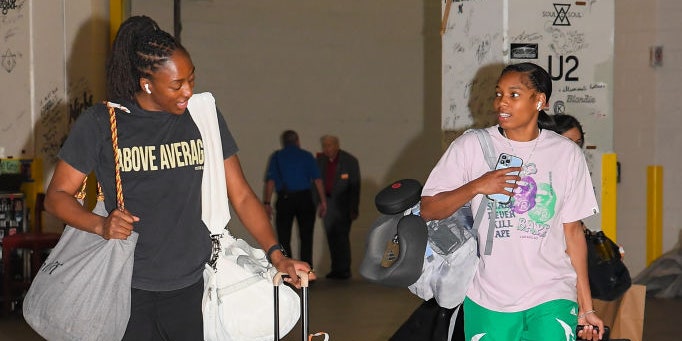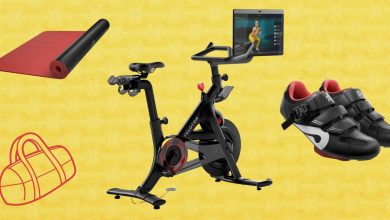Great News: WNBA Players No Longer Have to Take Commercial Flights to Away Games

A nail-biting March Madness tournament, a title game that smashed viewership records, and more than a few ridiculously long threes (thank you, Caitlin Clark) helped bring the excitement of women’s basketball to a bunch of new fans—and might have played a part in finally sparking some much-needed change on the pro level as well.
On May 9, the WNBA released an official statement confirming its plans to begin a full, league-wide charter flight program. The initiative, which will be primarily operated by Delta Air Lines, is set to begin at the start of the 2024 regular season on May 14.
Teams have generally flown commercial (a.k.a. board a plane with the rest of the masses) since the league began in 1997. Over the last few years, they’ve been allowed to charter planes (meaning, fly privately with just their teammates coaches, etc.) for “specific instances” (say, back-to-back games, the WNBA Commissioner’s Cup Championship, post-season games, and the finals). Doing it in other situations was straight-up banned. In 2022, the New York Liberty was reportedly fined $500,000 for “multiple violations of league rules,” which included taking eight unsanctioned regular-season chartered flights, according to the The New York Times.
That same year, WNBA commissioner Cathy Engelbert told ESPN that while they would love to have league-wide charters, the estimated $20 million cost wasn’t in the cards. “This is something that we’re not going to jeopardize the financial health of the league and be irresponsible about. If we can get it funded by sponsors and supporters, great, but that’s not where we are,” she said.
So what’s changed since then? For one, a lot more public interest (and with that, public scrutiny over league decisions)—and financial investment in the athletes. Some of the NCAA athletes had college NIL deals that surged past the million-dollar mark, and, as ESPN’s Michael Voepel points out, this brings “more impetus to protect those investments.”
The travel situation has been top-of-mind in the league for years. When ESPN surveyed 34 WNBA players—ranging from rookies to superstars—in 2023 and asked them what they believed to be the biggest issue in the WNBA, travel came up number one.
Flying commercial makes it a whole lot harder for players to perform, to put forth their best effort like their male counterparts in the NBA are able to do. Air travel just plain sucks, and having to deal with the hassle, delays, jet lag, and overall discomfort—cramped seats after a couple hours of stop-and-start sprints is going to make things tight—only compounds it, especially when your body is your livelihood.
“We only have probably two actual off days,” Los Angeles Sparks player Kia Nurse told ESPN. “Everyone’s like, ‘Oh, it’s an off day, it’s a travel day. Getting on an airplane and going up three hours, your body swelling, coming down, it’s not an off day.”
In a sport that requires speed and accuracy, adequate rest and recovery is vital to helping your muscles recover so you can sprint down the court, and to mentally recharge so you can nail a pair of free throws. What doesn’t help that whole process along? The short, fragmented, and achy sleep that comes with spending hours at altitude—and the time spent schlepping your luggage through security, waiting for a delayed flight, and picking up your bags after (which may or may not have actually made it to your destination of choice). And that’s before you’re trying to squeeze a six-foot-seven frame into a window seat because no aisle options were available.



